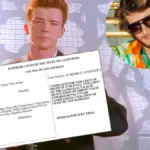The ongoing Tracy Chapman-Nicki Minaj copyright feud won’t be going to a jury after all. That’s because Chapman has accepted a “Rule 68 offer,” ending the lawsuit in her favor and leaving Minaj on the hook for a $450,000 judgment.
Based on the headlines and online comments I’ve been reading today, there seems to be some confusion out there about exactly how and why Tracy Chapman’s ongoing lawsuit against Nicki Minaj has been resolved. I figured the best way to clear the air was to for me to respond to a bunch of questions about the case that I just made up. Don’t worry; the answers are real.
I thought Nicki Minaj already won this case on summary judgment?
Tracy Chapman’s copyright infringement lawsuit, which she first filed in 2018, alleged that Nicki Minaj infringed her copyright in “Baby Can I Hold You Tonight?” in two ways: first, by preparing an unauthorized interpolated demo version of the song (Minaj’s “Sorry”), and second, by leaking that song without Chapman’s permission to DJ Flex, a popular New York radio DJ.
In her summary judgment motion, Minaj argued that the initial preparation of the track—which she characterized as an “experiment”—qualified as fair use under the Copyright Act. Last September, the court agreed. However, this ruling left Chapman’s second ground for infringement—unlawful distribution of the track—intact. That second ground was going to be the subject of a jury trial scheduled for March 2021.
Why did Minaj agree to pay Tracy Chapman?
Notwithstanding her summary judgment victory on the preparation of “Sorry,” Nicki Minaj had a lot of legal risk with respect to the song’s distribution. Minaj originally denied that she asked DJ Flex to play the track on his radio show, but then, when confronted with text messages to the contrary, admitted that she did plan to send the song to Flex before having a “change of heart.” It’s likely that the evidence at trial would would have pointed to her having at least some involvement in the leaking of the track.
Was the case settled?
Not exactly. The lawsuit was resolved without a trial, but not via a settlement agreement. Instead, Nicki Minaj served what’s called a “Rule 68 Offer of Judgment” on Tracy Chapman, which Chapman accepted.
What’s a Rule 68 offer of judgment?
A Rule 68 offer is a legal binding offer by the defendant that, if accepted, results in an on-the-record judgment in favor of the plaintiff. Federal Rule of Civil Procedure 68 is designed to encourage the early resolution of cases by imposing risk on a plaintiff who doesn’t accept the offer. If the plaintiff proceeds to trial and obtains a judgment that is “not more favorable than the unaccepted offer,” the plaintiff is responsible for paying court costs incurred by the defendant after the date on which the settlement was made. So, if the offer is reasonable, there’s an incentive for the plaintiff to accept rather than rolling the dice at trial.
Was the amount offered by Nicki Minaj reasonable?
As far as Rule 68 offers go, Minaj’s was pretty solid. $450,000 is well in excess of the maximum statutory damages Chapman could have been awarded by a jury, even if it were to find that Minaj infringed Chapman’s copyright willfully. This would leave Chapman to prove actual damages in excess of this amount. Given that “Sorry” was never officially released on Nicki Minaj’s album, that would have been difficult.
What about attorneys’ fees?
This is the tough part of the Rule 68 pill to swallow as far as Chapman is concerned. Her lawsuit against Minaj has been going on for well over a year. It’s likely that the legal fees she’s already incurred are close to $450,000—if not more. However, Minaj’s Rule 68 offer was expressly “inclusive of costs and attorneys’ fees.” This means that after Chapman pays her legal bills, there probably won’t be a whole lot left over. That said, Chapman ends up sending a clear message that she’s willing to stand up for her rights, and it seems pretty unlikely that she’ll be the subject of unauthorized sampling again in the future.
So what’s the bottom line result?
At the end of the day, an accepted Rule 68 offer constitutes an enforceable judgment against Nicki Minaj, just as if Chapman had won that amount at trial. Unlike most settlement agreements, it isn’t confidential. However, like a settlement agreement, the parties avoid the uncertainty and further expense associated with trial. All in all, it’s a good result for both sides under the circumstances.
Do you have additional questions about the case or the result? Let me know in the comments and I’ll be sure to answer. Meanwhile, a copy of the court papers are below.
View Fullscreen





